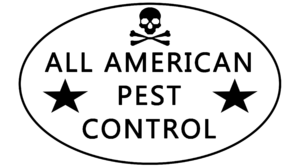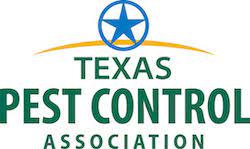
All American Pest Control
Your pest control company in the Brazoria and Harris County area.
Contact us today!
All American Pest Control
TDA CA #0557614 | TPCL 12987
(832) 221-3704 | anamerican1@yahoo.com
Have you met Charlotte Lily-Bob Weaver?
Come by and see her at
415 S Gordon St, Alvin TX.

Proud Member of


Reviews
Anna does a great job taking care of all your pest control needs! She’s cautious and cares about the safety of your pets and children. If I find a bug in between services she will come out to address the critter.. today she even brought in my trash can that was rolling away, she’s simply the best and truly cares about her customers!
Anna is awesome.. she took care of a mouse infestation, red wasp colonies… removed mud dubbers and treated the home outside while ensuring the safety of children and pets. Her prices are reasonable and her service is professional, personalized and efficient. Very pleased! She goes above and beyond.
Anna has taken care of our home for years. We’ve never had a problem that she hadn’t immediately tackled. She’s professional, efficient, and thorough. We highly recommend All American Pest Control!
10 Frequently Asked Questions about Pest Control
1. What is pest control? Pest control is the management and elimination of unwanted insects, rodents, and other pests that can invade homes and businesses. It involves various techniques and treatments to ensure a pest-free environment.
2. How often should I have pest control services? The frequency of pest control services depends on the type of pests and the severity of the infestation. Typically, quarterly treatments are recommended for ongoing protection, but some situations may require more frequent visits.
3. Are pest control treatments safe for my family and pets? Yes, many modern pest control methods are designed to be safe for families and pets. Our eco-friendly solutions prioritize safety while effectively managing pest issues.
4. What should I do before a pest control treatment? Before a treatment, it’s advisable to clear the area of any personal items, food, and pet supplies. Following specific instructions from your pest control provider will help ensure the treatment is effective.
5. How long does it take for pest control to work? The time it takes for pest control to work can vary based on the type of treatment used and the pest involved. Some treatments may show results within a few hours, while others may take several days to fully eliminate the problem.
6. Can I stay in my home during pest control treatments? In many cases, yes. However, some treatments may require temporary evacuation for safety reasons. Your pest control provider will give you specific instructions based on the treatment being used.
7. What are some signs of a pest infestation? Common signs of a pest infestation include droppings, gnaw marks, nests, and unusual sounds. If you notice any of these signs, it’s best to contact a pest control professional for an inspection.
8. How can I prevent pests from entering my home? To prevent pests, seal any cracks or openings in your home, keep food stored securely, and maintain a clean environment. Regular inspections and treatments can also help keep pests at bay.
9. What types of pests do you handle? We handle a wide range of pests, including ants, roaches, termites, rodents, bed bugs, and more. Our team is trained to identify and manage various pest issues effectively.
10. Is pest control expensive? The cost of pest control can vary based on the type of service needed and the extent of the infestation. We offer competitive pricing and customized plans to fit your budget while ensuring effective pest management.
All American Pest Control
is a proud supporter of





